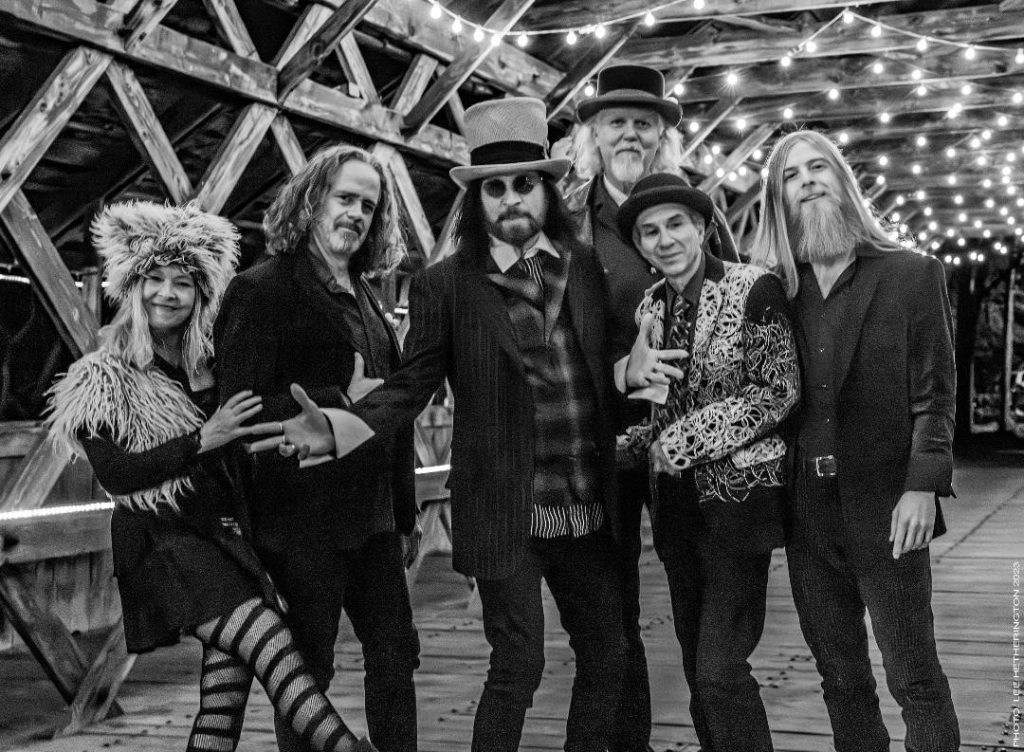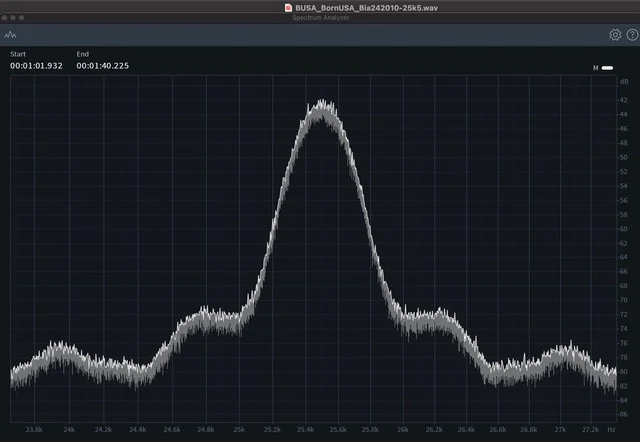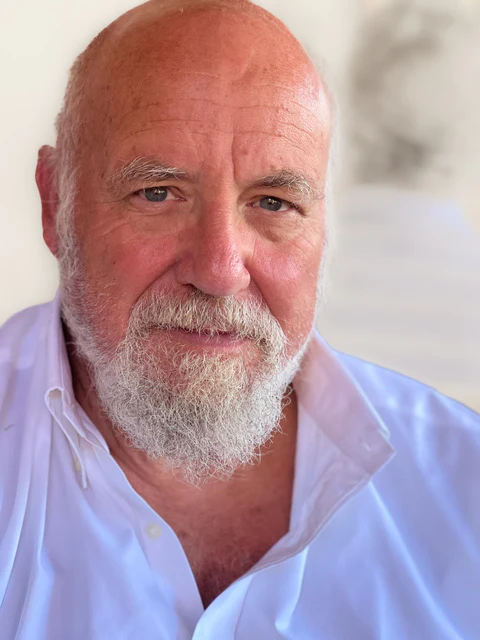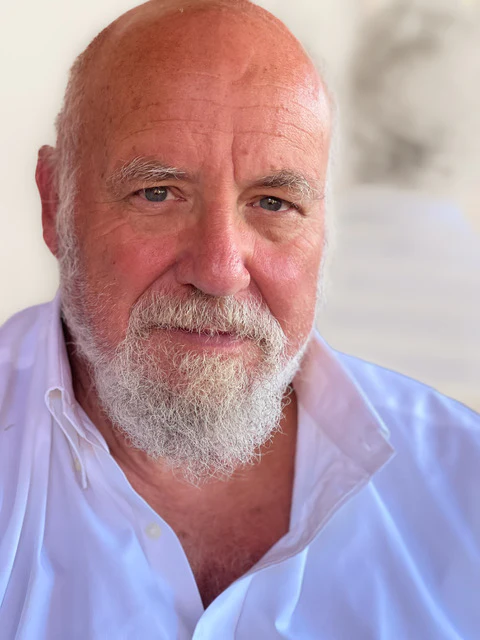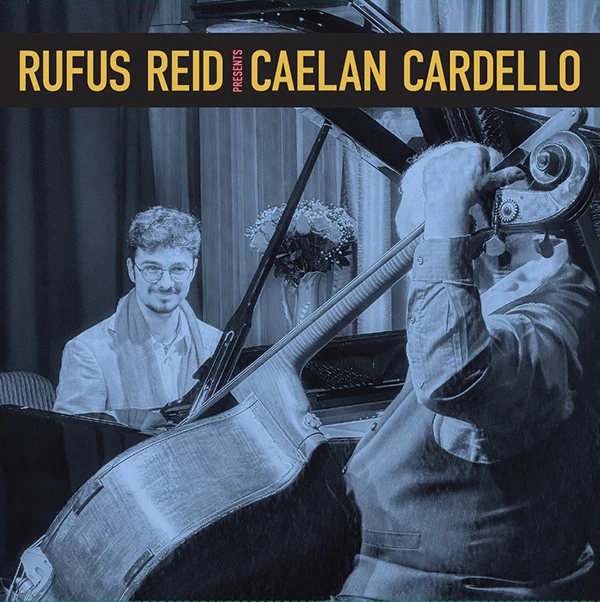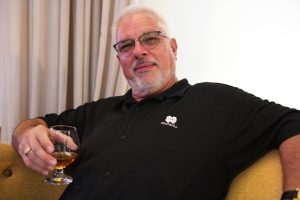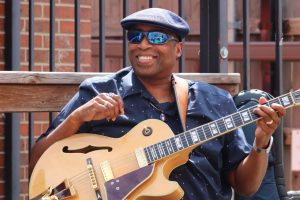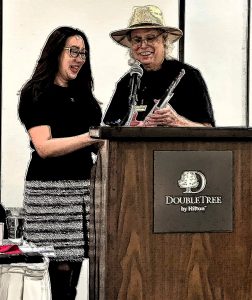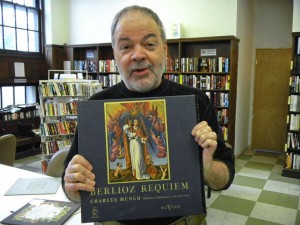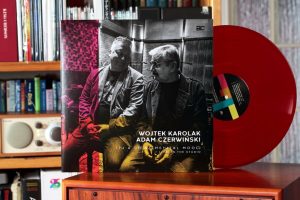This article is republished from Copper Magazine, edited by Frank Doris, and was written by him. Frank is also a Senior Associate Editor here at Positive Feedback, where he is a valued member of our editorial community.
Enjoy!
I first heard about the Slambovian Circus of Dreams, aka the Slambovians, a few years ago, from the guys and gal in the band I'm in. They were raving about how great the Slambovians were as musicians, entertainers, and songwriters, and were psyched to go to an upcoming concert. I didn't go, out of laziness.
However, our band members' enthusiasm was enough to make me check the Slambovians out…and I was really impressed. I'd thought the Slambovian Circus of Dreams would be just another stereotypical "Americana" band, but they defy such easy categorization, blending folk, jam-band stylings, instrumental virtuosity, psychedelia, a healthy dose of hard rock, and a whole lot more. And not only can these guys and gals play, they can slay it onstage. Just listen to any live version of one of their signature songs, "The Trans-Slambovian Bipolar Express."
The Slambovians have been around since 1999; even before that if you count their previous incarnation as progressive rock band The Ancestors. They've released 19 albums including their latest, 2022's A Very Unusual Head. So, when I got a message from music publicity person Anne Leighton saying the Slambovians would be playing a concert near me at Long Island's Boulton Center for the Performing Arts (on February 9), and that they were available for interviews, I considered this to be fate telling me it was time to connect.
I talked with guitarist/songwriter/singer Joziah Longo and accordion/cello/mandolin/flute player Tink Lloyd, and we just let things fly.
Frank Doris: Let me ask the inevitable question where you probably sigh and go, "oh, not again." How did you come up with your name?
Joziah Longo: When we were working in studios in Manhattan in an early stage of a band we called The Ancestors, people used to say, "things are slamming!" I kind of evolved that to say, "that is Slambovian!"
So I carried that around with me, that Slambovian thing, for years, just using it as a kind of tongue-in-cheek extension of "slamming."
And then what happened was a series of things. Eddie Kramer (recording engineer for the Jimi Hendrix Experience, Led Zeppelin and others – Ed) did an album with us. Every major label was interested in that album because Eddie flipped over it, and they started courting us. (But) I was a very neurotic Syd Barrett-ish kind of guy at that time. I did not want to sign with a major. I really saw it as a trap. And everybody thought I was arrogant to not want to sign. It caused some ill will in the industry.
The Slambovians: RJ McCarty, Tink Lloyd, Matthew Abourezk, Joziah Longo, Bob Torsello, Sharkey McEwen.
FD: You've been around for a while.
JL: We've done festivals and all kinds of things. We're booked like a year in advance. This has been the day job for us for the past 30 years. It's nonstop for us, and each place (we play) means a lot to us. You give everything you've got. You're ready to drop dead on stage (after) every time you do a performance. That's what it's about for us.
FD: When you hear the name "the Slambovians," it sort of gives you a picture of what kind of band you might be, but it doesn't give you any hint as to what you really sound like, if you get what I mean. At first I was wondering if you were going to be some kind of comedy band like the Bonzo Dog Band, or a bunch of hipsters with pawn shop guitars, but you're nothing like that. And you rock really hard.
JL: We do! Honestly, the words (used to describe a band) never fit. We are like a classic rock band from the Sixties and Seventies. And it's like we held onto that Syd Barrett edge if you catch what I mean (Syd Barrett was the co-founder and original guitarist for Pink Floyd – Ed.), so all that whimsical, crazy, cool, trippy stuff comes out. The Americana influences have got to do with the fact that my father played all the classic Hank Williams, Hank Snow, all that (country music) from that era, and then moved right into the British Invasion. He would tape things off the radio and he'd learn the songs, and then teach 'em to me when I was a kid. So a lot of that Americana aspect of the band is real Americana. It's not the glued-on stuff.
FD: How did the band get together?
JL: Tink and Sharkey (guitarist/mandolinist/vocalist Sharky McEwen) and myself have been the core, and people have flown in and out of band, and I have kept it together. (After) Tink and I didn't want to sign (to a major label), in the mid-Nineties we went back to school to learn how to do basic engineering, graphic design and shoot video, so we could just do things ourselves without always being tied to a bunch of big sumo wrestlers in the industry that wanted to throw you around the ring.
We created the name, "Gandalf Murphy and the Slambovian Circus of Dreams." We thought, "that'll chase everybody away!" And then, just because of the name, we started getting gigs. And odd things happened when we played obscure places. People like Garth Hudson (of the Band) would show up. And we were like, "this is something, there's something magic going on here." We were asked to do bigger and bigger festivals. Then somebody in the UK got wind of us and brought us over. And it just kept evolving into this thing that provided enough money for us to raise a family and do what we needed to do, even though we didn't have any structure or help or booking agent even at that point. We're not trying to kiss the industry's ass in any way. We never have.
Joziah Longo, Garth Hudson and Tink Lloyd hanging out at the Colony in Woodstock.
I'm especially honored when musicians or sound techs at shows hear our music and they like us. To me, that's the sign of whether the band's any good or not—when our contemporaries appreciate the band, we know we're on the right track.
We've never tried to cater to any particular market. As so many great musicians say, good music is good music. It's hard to even classify. We steal from every realm, and we do it just because we assimilate the things that we love. People always think I'm like a (Frank) Zappa, and that the music is all going to be stuff that's out on that edge. But they're always surprised that it's very "gettable" stuff. It dances into the fringes, but it's very core is simple, down to earth, bread and butter in the middle of it. It's just classic stuff that took a little acid.
FD: So, you didn't consciously decide the Slambovians were going to be "eclectic." You just took all your influences and blended them together and went for it.
JL: That was it, Frank. Honestly, it evolved, and I guess there's a certain quirkiness in me. I've always had a hard time fitting into anything or anywhere, or doing anything normal, or going to school. I was always a little bit on the fringe of things without meaning to be.
FD: Sharkey's the guy who plays the Les Paul guitar, an unusual choice for an "Americana" band.
JL: That Les Paul is mine. I've carried it around like the Holy Grail.
FD: He gets an unbelievable sound.
JL: People like Sonny Landreth – when we do festivals, they stand around and watch, and they always ask, "Shark, how are you getting that sound?" Back in the days when we used no amps, he just ran everything direct out through his effects pedals, right into the house PA.
FD: So, he's not using some "magic" amp. it's in his hands and his approach.
JL: Yeah. He's one of those guys that can't even tell you the pedals he's using. They mean nothing to him. He just intuitively picks the right things and he's very reverent towards the music. He really paints what needs to be said in a very cool way.
TL: We're talking about us, but you can't really talk about the Slambovians without talking about the evolution of the music industry as a whole. The early Nineties was still pretty traditional in terms of how you made a record, but because of working in the studio and talking to studio heads like Tony Bongiovi at Power Station, people were saying, "hey, don't invest in big studios. Everything's changing to digital, to desktop publishing, to desktop engineering." We were feeling this change, this kind of wave, and then we were feeling like it was a good time to catch the surf and kind of ship out. So, we disappeared from New York City and kind of dropped out, and (thought), "we've got to be more DIY."
Around that time, we were living in Westchester County (New York), and I was thinking, "where's a healthy music scene we can plug into?" It was the beginning of the singer/songwriter renaissance, the coffeehouse circuit renaissance that was happening with Ani DiFranco, Dar Williams, all those people. Westchester was part of that hotbed between the Hudson Valley and Northampton/Boston area. There was a real circuit of open mics everywhere.
I had just picked up the accordion because we wanted to do something stripped-down and acoustic, so we could just go in guerilla style and play open mics and build an all-new following. And that's what we did. The very first open mic Joziah did after not playing out for a year got him an offer to play a radio show that week. It turned out be a big classic rock station, WPDH, with an audience of thousands. We were listening on the way to the station; I was so freaking nervous. It was a morning show. We thought the DJs were going to eat us alive. You know how crazy those guys are. We played a song called "Genius" and they said "Wow, I'd buy that!" Everything played after that was golden.
Tink Lloyd proving the accordion is not an uncool instrument. Courtesy of Stuart Berg.
When I bought the accordion I said, "damnit, I'm going to play this thing!" And everybody laughed at me, but then that accordion opened all the doors. That's why we kind of got in the folk circuit. I'd said to Joziah, "the problem with trying to compete with bar bands is it doesn't make any sense. You're an amazing songwriter. Let's go where the song appreciators are."
We met Garth Hudson from this guy who had booked that radio show. He said, "Hey, why don't you play this "Best Unsigned Band" thing here in Poughkeepsie?" We walked in with my little toy accordion, Joziah's acoustic guitar, and our drummer, just the three of us. They gave us a corner on the stage to play, and it was like, "What the hell is this?" But we started playing, and John Regan, who was the bassist for Peter Frampton and other rock luminaries was one of the judges. He started weeping. So did John Platania, Van Morrison's long-time guitarist. And then Garth Hudson walked in the middle of our little set. He was watching from the back of the room. And we won.
TL: We got this kind of crazy response from people, but we just kept hiding out in the woods. Joziah used to just go walk in the woods in Sleepy Hollow, near our house. And there's a special place that's right in the woods, behind the graveyard. That's where he came up with the name "Gandalf Murphy and the Slambovian Circus of Dreams." We started using the name, but we weren't even playing anywhere. We were in art school. Then we used that as the title for a show we were presenting. That's where we met our (original) drummer, Tony Zuzulo, who's been with us for most of the band's career. He was our professor. He came in and helped us finish our first album. And that was the beginning of our live performances as the Slambovian Circus of Dreams in the late Nineties.
That's kind of where it started. (Now), We've been voted best unsigned act, best this, best that, for years. We're local, but we're also international to some real special towns in England and here in the States.
FD: I read that you were the first band to play in China after it opened its doors about 30 years ago. How in the world did that happen?
JL: It's a crazy story. We had played in Japan on a bill with other bands, in this punk club in Japan, the Monster Club or something like that. This Japanese band who had seen us play got into China and people loved them, and even the government loved them. And (an official) said to them, "Do you know another band like you?" And they had just seen us play in this punk club in Japan, and told them about us.
The guy got buzzed about the idea, and then found out we were an American band, but he still pursued us. This guy took a chance, and all of a sudden we were going to China and playing in Shanghai before it really opened to the West. There was only one hotel in Shanghai when we played there. And we played several shows around the city for a few weeks. They wrote such positive things in the press about us, and they even printed the first English word ever in the People's Daily newspaper. The first English word ever.
We took a cameraman with us and filmed it, so you can see that we had armed soldiers at our show, who wound up becoming our friends instead of shooting us for what we did on stage! You can see the footage in our video, "Shanghai."
Tink and I have been living on the edge all the time. When we had our run-in with the industry, our family wound up homeless. We had to get grants to go back to school. We were piss-poor and we had just dissed the industry. But Tink and I are both nuts. We're like you; we're nutty musicians who just…music is the thing. We throw caution to the wind.
TL: We're still pretty small, but we're a very small success story.
FD: Well, that takes a lot of courage. I don't know if I would've had the nerve to do that.
JL: The courage is the answer. You've just got to keep your boat patched. As long as the water can't get in, you won't sink.
After the recent pandemic, it's a new time to hit the reset button, and it's a new time to get small for everybody. There's so much craziness going in the world. We need to find out what's important.
You need to consolidate your friends. You need to consolidate your life. Think about what's important. That's why we're excited to go to a town like Bay Shore and play a place like the Boulton Center, a small town that's got pride in this historic theater reopening. We're very into hometown America, It's a Wonderful Life kind of thing. Because what we've got to value is a very small dream, no matter how much people knock America for this or that. All our ancestors came here with a dream in mind to make the cool magic town where everybody fits. And I think that's the thing behind the Slambovians, and that's what the Beatles were for us, lads from a working-class town in Liverpool that they made romantic and powerful.
I think the hope is to always return to the simple dream. Appreciate your friends, build community. If we can make the community work, we can make the world work.
You've got to build a world around your band. Try the new things that people are doing, TikTok, artificial intelligence, try all that. But the real core is this: you build a world that people can come to, and when they come, they can escape the bullyism of the world and start anew, and feel empowered to go into the next week of their lives and face what they're facing and turn it into something hopeful. To me, that's what a show is, for all of us, Frank, I think.
We're all the same. We're all trying to figure out how to make this thing work. Forget the divisiveness. I've got a new song called "The Enemies of Love." It's saying, forget "the enemies of this, the enemies of that, there are no enemies at all, in all below or above, in all creation, except the enemies of love." I grew up in a neighborhood in Philly where people liked to fight with each other, but politics didn't separate them. It made them argue in a good way, and then they'd laugh at each other and have a beer over it.
Let's work together. Let's find common ground. Let's make a town where there's people from both ends of the spectrum and they're working together and they're listening to each other's ideas.
Joziah Longo. Courtesy of Stuart Berg.
FD: The world has done a reset over the last few years because of COVID. Aside from the obvious fact of gigs disappearing for a while, how did it affect you? I know you did that uplifting video, for "A Box of Everything." How else did the pandemic affect you?
JL: I think honestly it was a gift to us. I don't mean the bad sides of it, but we'd been on the road never-ending. And what that time allowed me to do was start recording the 300 songs I had waiting.
FD: 300 songs?!
JL: I'm cursed with a little bit of the Dylan Syndrome. People were like, "you write all this stuff, just be the guy yourself!" But I feel like you want be in a band where people are equals and everybody's bringing their thing.
I'm as prolific as Dylan, but we're trying to be the Beatles.
TL: At age 12 Joziah was playing Dylan covers on street corners. He thought he was Bob Dylan. But he says he had room to think that because Bob Dylan thought he was Woody Guthrie!
JL: My dad and grandfather played the bars in South Philly in rough neighborhoods. From my first Christmas, they bought me plastic guitars and real guitars. My grandfather hung a guitar over my crib.
FD: That's the opposite of most parents. Most, including my father, would be like, oh, please god, don't be a musician. You'll be doomed to a life of misery and screw yourself up completely!
JL: Before the Beatles or anything even happened, I was stuck with this thing. It's the only thing I know how to do. Luckily it draws really great players. We've had a myriad of guitar players that were incredible. But luckily Sharkey stuck around and even after his midlife crisis or whatever it was, he realized the Circus is the only place to be.
I think we're all late bloomers, Frank. We haven't even done what we're supposed to do yet. We're just starting.
FD: I feel like when you're really on as a musician, you're tapped into something. You hear so many musicians say this.
JL: Absolutely. Yeah, absolutely.
Tink Lloyd and Joziah Longo.
TL: So now that you got on this metaphysical tip… consider even the term "Slambovian," which means "wow, that's really slamming." But for us, it's like transcendent channeling, that's where the term "Slambovian" came from. That's beyond slamming. That means you're in the zone. For us, it's a descriptive, but it's also an experience. The Slambovian Circus of Dreams is kind of a zone, a realm, when we play a show. There's this communication that goes on between the musicians. When you're playing it's a big mind meld, but the audience also becomes part of it. The word circus means "circle." So, it's something between the band and the audience as well. It's that transcendent thing, which is really why people go to shows. They want to get connected to the mothership.
JL: We sell more merch than anybody at the festivals we play, including big name bands, which means that (being in) that zone somehow is experienced by the people. They're in the zone, and the love they feel for that zone that they go to when they hear the music is really what it's about. It's a zone in a realm that's being channeled through this band. And every band's got their unique realm. That's why I always say to young musicians: you've got to just create a world around you.
FD: It's magic. That's the word I keep coming back to. That's what great music is all about. There's something about it that's beyond human understanding, I think.
JL: If there is an afterlife, we only enter it with what we've achieved in this life. Meaning, the skills that allow us to give are the most important thing. What can you give when you go to the spirit world? What is it you're capable of giving, and are you giving? If you're giving, when you go to the afterlife there's billions of people that have died already waiting for you to do your tour. We think that when we drop dead, we'll do the real Slambovians tour. We'll go down to hell and play. Make Satan wish we never came to visit!
TL: I have a motto that I came up with recently for 2024: "Don't pick a side. Pick a future."
The Slambovians at Cropredy Convention 2022.
Band links:
www.slambovia.com
www.soundcloud.com/slambovia
www.youtube.com/slambovia
www.facebook.com/slamboviancircusofdreams
www.instagram.com/slambovia
www.twitter.com/slambovia
Header image courtesy of Lee Hetherington. From left to right: Tink Lloyd, Sharkey McEwen, Joziah Longo, Matthew Abourezk, Bob Torsello, RJ McCarty. All other images courtesy of the Slambovians unless otherwise noted.




